Revisiting the Horror of Nanking
“City of Life and Death,” by the Chinese writer-director Lu Chuan, is the second film about Nanking, and it is a work that aspires to the definitive and almost achieves that status.Little as I wish to say it, “City of Life and Death” needs to be more brutal than it is.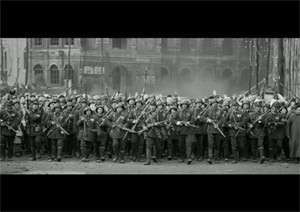
In December 1937, Japanese troops entered the Chinese capital, Nanking (or, as it is now known, Nanjing). They were told that they could work their will on its captive citizens, and there ensued at least six weeks of what is almost certainly history’s most concentrated and brutal reign of terror. What has gone into history as “The Rape of Nanking” eventually cost between 200,000 and 300,000 lives—more than the death tolls of Hiroshima and Nagasaki combined—which says nothing of the nonlethal atrocities visited upon the city’s population.
At the time, the world’s attention was largely focused elsewhere—mainly on the war clouds gathering over Europe. The Nanking story was reported, of course, but the horrific events occurring there were remote, distant from Western consciousness. It has taken almost 75 years for this story to fully register on the rest of the world, with Iris Chang’s great (and almost unreadably monstrous) account of this atrocity being a crucial event in this belated awakening (she committed suicide in the aftermath of her 1997 book).
“City of Life and Death,” by the Chinese writer-director Lu Chuan, is the second film about Nanking, and it is a work that aspires to the definitive and almost achieves that status. It is shot in black and white, often with hand-held cameras, so that it has the look and feel of an epic newsreel. What is perhaps more remarkable about this film is its evenhandedness. The press notes about it stress the fact Nanking remains, to this day, central to the relationship between China and Japan — a source of suspicion, not to say hatred, on the part of the former. It therefore required courage on Lu Chuan’s part to undertake what amounts to a more or less objective and determinedly non-sensational account of this story.
There are, for example, in Iris Chang’s book still photographs of massacres and sexual crimes that one cannot bear to look at. There is nothing of the sort here. The allusions to war crimes are stated coolly, almost dispassionately. And, most remarkably, the central, apparently fictional, story Lu Chuan tells is of a young Japanese soldier who falls in love with a Chinese woman, forced to serve as a “comfort woman” (prostitute) for the conquerors. Even more remarkably, she is doing this as part of a deal between the Japanese and the citizenry. If a hundred women submit to this ordeal, the Japanese promise not to violate the “Safety Zone,” set up by a Nazi businessman, John Rabe, who, virtually alone, is able to negotiate with the Japanese.
It is perhaps needless to say that the Japanese soldier does not come to a good end. It is perhaps necessary to say that the film, potent as it is in many respects—and entirely worthy of our appalled attention—is at some level unsatisfactory. Little as I wish to say it, “City of Life and Death” needs to be more brutal than it is. It needs some imagery that forces us to look away from the screen—as the stills in the Chang book do—the pornography of violence raised to flash point. More important, the film needs to explain (as its press notes do) that the behavior of the Japanese army was not accidental, some sort of inexplicable riot. It was, rather, a promise fulfilled. The high command had, both implicitly and explicitly, told its soldiers that once inside Nanking’s gates they were free to visit any horror they could imagine on any defenseless human being they encountered. They were told that the Geneva Conventions establishing the “rules of warfare” simply did not apply to them.
The director wants to make another point. It is that the Japanese are essentially no different from anyone else, that their capacity for horrific behavior is a weakness shared by humanity everywhere. This is, in some sense, a truism — as the Holocaust proves. But the complicity of Japanese leadership in the rape of Nanking, and the willingness of its troops to partake in the exceptionalism implicit in these events, seems to me to tell a rather different story. And it does not help us much to show some nice guys among the invaders. All wars, of course, have their horrors—among which Hiroshima and Nagasaki must be numbered, along with the Allied fire bombings of Tokyo and Hamburg. But there was, I think, an up-close-and-personal malicious aforethought at Nanking that was extraordinary and not excusable by exculpatory liberal-mindedness. This was a lengthy exercise in motiveless malignity, and this movie, powerful as it is in many respects, essentially offers a sort of everybody-does-it (or might do it) rationale for the behavior it recounts. That, however, is not so. The “Rape of Nanking” remains unique in the annals of warfare—for its duration and for the extent of its crimes. To place vague blame for it on something like “human nature” and its universal capacity to do “bad things” is finally to elide morality. And that will not do.
Your support matters…Independent journalism is under threat and overshadowed by heavily funded mainstream media.
You can help level the playing field. Become a member.
Your tax-deductible contribution keeps us digging beneath the headlines to give you thought-provoking, investigative reporting and analysis that unearths what's really happening- without compromise.
Give today to support our courageous, independent journalists.

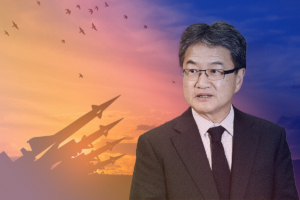
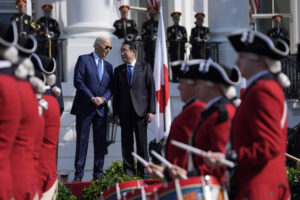
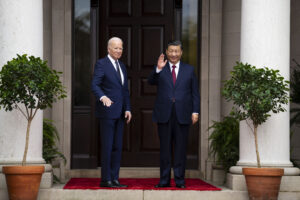
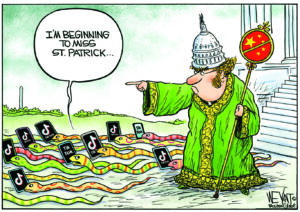

You need to be a supporter to comment.
There are currently no responses to this article.
Be the first to respond.